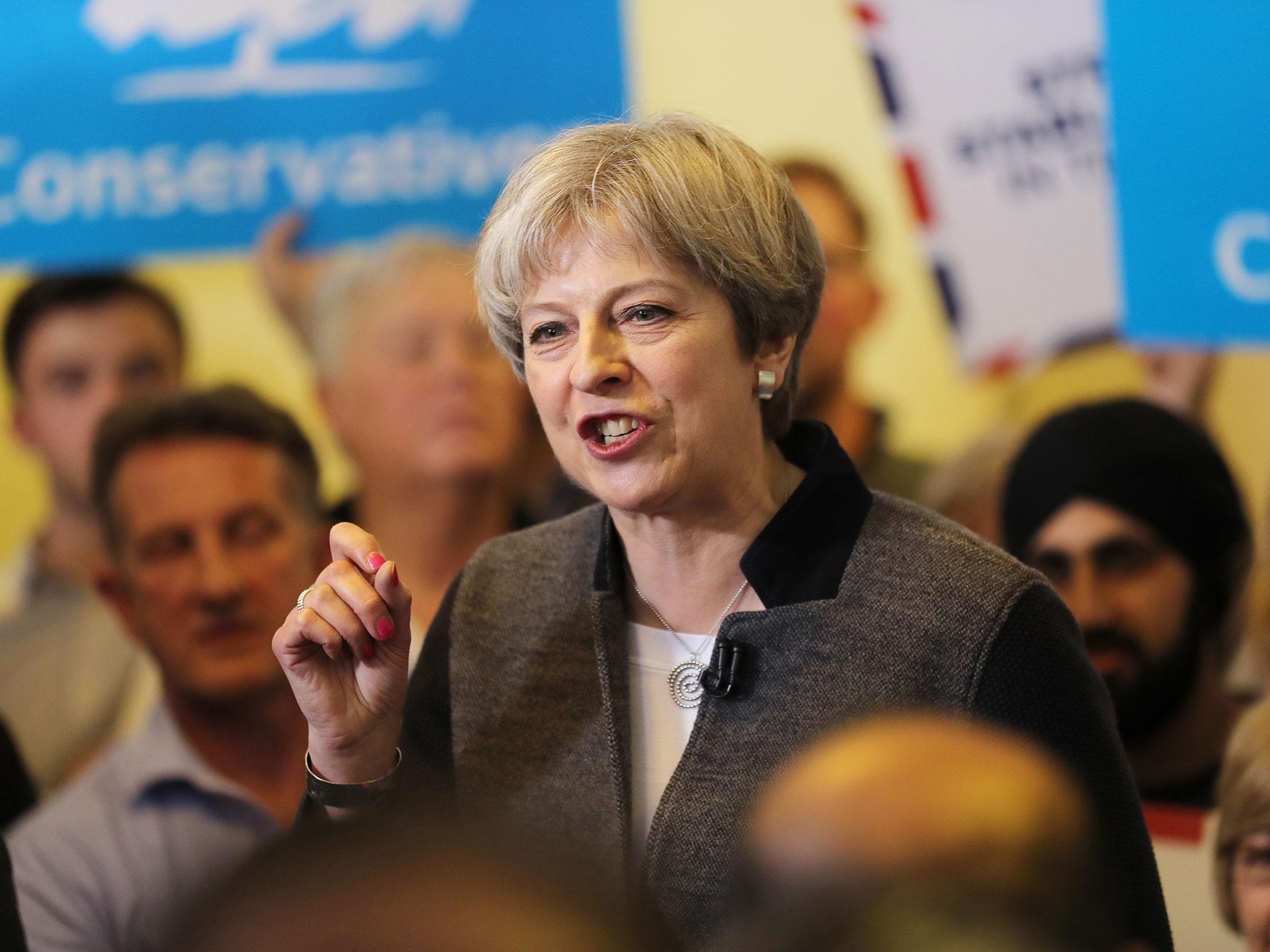Theresa May's refusal to remove foreign students from immigration figures 'damaging UK's world-class universities'
MPs call for overseas students to be recorded 'under separate classification and not counted against overall [migration] limit'

Your support helps us to tell the story
From reproductive rights to climate change to Big Tech, The Independent is on the ground when the story is developing. Whether it's investigating the financials of Elon Musk's pro-Trump PAC or producing our latest documentary, 'The A Word', which shines a light on the American women fighting for reproductive rights, we know how important it is to parse out the facts from the messaging.
At such a critical moment in US history, we need reporters on the ground. Your donation allows us to keep sending journalists to speak to both sides of the story.
The Independent is trusted by Americans across the entire political spectrum. And unlike many other quality news outlets, we choose not to lock Americans out of our reporting and analysis with paywalls. We believe quality journalism should be available to everyone, paid for by those who can afford it.
Your support makes all the difference.Theresa May is under mounting pressure to remove foreign students from the immigration figures after MPs warned that her refusal to do so is damaging Britain’s world class universities.
In a report published today, the cross-party Education Select Committee calls for overseas students to be recorded “under a separate classification and not be counted against the overall [migration] limit.”
Suggesting that Ms May is isolated on the issue, the MPs say: “There is widespread support for treating international students as temporary rather than permanent migrants: from the public, Parliament, and parts of the Government.” It highlights remarks by the Brexiteer ministers Boris Johnson and Liam Fox in favour of taking the students out of the figures.
Amid Cabinet tensions over immigration, the Prime Minister may have to compromise in order to push the Higher Education and Research Bill through before Parliament is dissolved for the general election. Unless she makes concessions, the House of Lords, which voted for an amendment saying foreign students should not be treated as migrants, could block the Bill.
Although Ms May last week reaffirmed her commitment to the Government’s target to reduce net migration to under 100,000 a year, it is unclear whether the figure will be included in the Conservative Party's manifesto. The Independent understands that some ministers, who believe the goal will never be achieved, are pressing for a vaguer pledge to reduce migration to “sustainable levels.”
The Independent and the Open Britain group are running a Drop the Target campaign to persuade the Government to abandon the goal.
In the report, the committee said EU students generated an estimated £3.7bn for the UK economy and 34,000 jobs in 2011-12. They are worried the Government’s drive to reduce the number of overseas students is deterring applications. The number of EU undergraduates dropped by 7.4 per cent over the last year, a trend likely to worsen after the Brexit vote.
According to the committee: “The Government should remove overseas students from the net migration target to make it clear it wants talent to come to the UK. The Government’s refusal to do so is putting at risk the higher education sector’s share of the international student market. Removing international students from the target would be a simple way to offset some of the risks from leaving the EU.”
It warned: “If the Government does not address the specific concerns within the higher education sector, there is a risk that Brexit will damage the international competitiveness and long-term success of our universities.”
The committee called for “a system closely resembling freedom of movement” for all overseas students to enable the UK to remain a global leader in higher education. For EU students, there should be a reciprocal open approach with light touch controls, such as visa-free access, it said.
The rights of EU higher education staff, who make up 16 per cent of the workforce, to work and live in the UK should be guaranteed as soon as possible, to end uncertainty and prevent a significant “brain drain” of talented staff.
The MPs urged the Government to unilaterally agree the rights of the three million EU nationals in the UK before the end of this year even if a reciprocal deal is not agreed before then.
They warned that ministers would be failing in their duty if they did not draw up a contingency plan for higher education in the event of no exit deal being reached in the UK-EU negotiations.
Neil Carmichael, the committee’s Conservative chairman, said: “As we leave the EU, we now have the opportunity to reform our immigration system to ensure we reap the full rewards of the ability of our universities to attract the brightest and best students and staff from across the world.”
MPs backing Open Britain renewed its call for students to be taken out of the immigration figures. Norman Lamb, a former Liberal Democrat minister, said: “EU university staff make a vital contribution in building our knowledge economy and supporting our world-leading universities.” Ben Bradshaw, a Labour former minister, said: “It is shameful that the Government sees EU citizens living in Britain as ‘cards’ in a negotiation, rather than human beings.”
Alistair Jarvis, deputy chief executive of Universities UK, said: “Changes to our immigration system are also needed to ensure that the UK remains a destination of choice for international talent and students.”
The Department for Education said decisions on the report's recommendations would be a matter for the next government. It pointed out that ministers had already guaranteed EU students access to student loans and grants for the 2018-19 academic year. Jo Johnson, the Universities Minister, said: “We have been clear about our commitment to the UK’s world class higher education sector.”
Join our commenting forum
Join thought-provoking conversations, follow other Independent readers and see their replies
Comments